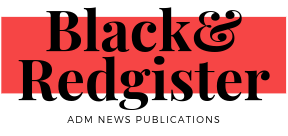The Benefits of College in High School
Photo by Cameron While
College is a big expense. Taking classes in high school can help you save for college.
Many high schools in Iowa are offering their students the opportunity to take college classes. WhoTv reporter Christina Salonikas said, “According to the Iowa Department of Education 51,001 high school students jointly enrolled in a community college course last year, increasing by 2.3 percent.” ADM is one school that gives the opportunity for students to take DMACC classes online, at DMACC, or through dual-enrollment.
Lori Mann is an administrative assistant with ADM’s counseling center. Her reasons for why kids should take DMACC classes are, “It’s gonna save you money in the long run, the school pays for your classes if they [the students] take them for the right reasons. It also gives you opportunities to look into different career fields.” We have 75 students that are taking one DMACC class, while we have 12 students taking more than one, and we have four students that travel to a DMACC campus to take classes. ADM also has a success rate of 92% with students taking online classes (this is with a grade of C- or above). Mann also said, “Students need to remember they’re college classes, and they’re going to be hard and one thing that develops is your independence.”
ADM has had two students be maxed out or close to maxing out the number of DMACC credits they could take in a school year and had to watch them very closely. One of those students was Alumni Loren Ritter. Ritter said, “I researched and narrowed down my top two colleges before I registered for classes, so I took a lot of classes required as prerequisites for the English education program at Chadron State College and the University of South Dakota.”
Ritter’s schedule freshman through senior year in high school looked normal until junior year as she wasn’t allowed to take DMACC classes until her junior year. When Ritter started she was in Perry at their DMACC branch and would commute with two other ADM students at the time. After that all her dual credit classes were online so she would spend the majority of her time in the library or in Mrs. Basinger’s room. Ritter’s senior year she had three class periods around the lunch hour that were blocked off for dual credit classes.
Ritter was motivated to take so many DMACC classes because her father was a first-generation college student and always stressed the importance of saving money on college. Ritter said, “So I just tried to take as many courses as I could to save as much money as I could.” The greatest benefit to Ritter is that she was able to explore her desired major in high school and gained the ability to graduate college a year earlier. It wasn’t too hard for Ritter to balance her workload because she took a majority of her classes in the spring, so colorguard and dance were winding down and she could get everything done in the allotted time slot.
Ritter’s finals thoughts were that it’s not for everyone to take the max amount of DMACC credits but if given the opportunity again she would do it in a heartbeat. As a DMACC and ADM student she learned that “If you want something you have to work for it.” Lastly, Ritter has worked in the admissions office at USD for over a year, so future USD students can get this same advice: “Take advantage of dual credit as much as you can.”
Barb South is the academic advisor for Perry VanKirk Academy from DMACC and serves five high schools (ADM, Perry, Woodward-Granger, Panorama, ACGC). Her role is to help students register for classes and answer any questions they have about DMACC. ADM students can use her by contacting her through email or setting up an appointment with the counseling center to discuss any DMACC classes they want to take in high school, or questions about applying to DMACC, setting up testing for acceptance and much more. South said students should take advantage of DMACC classes because “Taking DMACC classes in high school will help them attain college credit to transfer and they get to explore careers for their future.”
South sees a lot of challenges with students when they take online classes with the main one being managing time and remaining organized and completing the classwork of a college class and communicating with their professors. Her advice to be successful is “Attending class and or check-in and do the work on time.” College classes are not for everyone and South suggests that for students who don’t want to attend class regularly or don’t want to do the work needed to be successful should not take DMACC classes.
The top classes South sees high school students take are Statistics, Intro to Psychology, Developmental Psych, business classes, and any classes related to the interests of the student. South recommends these classes to high school students: classes available at their high school as dual credit, any Career Academy classes that interest them (nursing, auto, welding, EMT, applied engineering technology), and then some online classes like Psychology, Sociology, Ethics, history, and Fundamentals of Oral Communication.
Ritter also said, “I would recommend taking general courses most colleges require— because it’s absolutely normal to change your major at least once! So, like a math, English, science, or speech course give students the flexibility to customize their college experience.”
South’s final words were “As your academic advisor, I encourage you to send questions about DMACC as I am more than happy to help.”
So, if you’re struggling to determine if a DMACC class is right for you there are tons of benefits to taking one while in high school and plenty of resources for you to use to assist you in your process.





